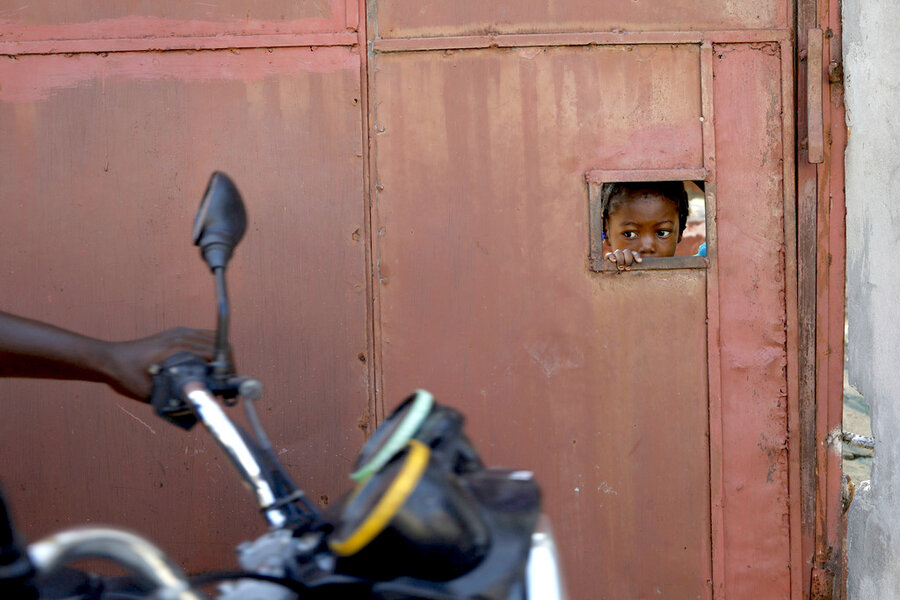Resetting Haiti through trust
Loading...
When a government collapses, the immediate challenge is how to protect innocent civilians. They need security, leadership, and aid. In Haiti, the Caribbean island nation descending into gang chaos, the people are grasping for more than protection. They deeply desire an opportunity to reset their democracy.
The basic building block for that desire is trust among ordinary Haitians. “We can’t reduce the country to just a small minority of people without taking into account the voices of the majority,” Liné Balthazar, a Haitian political party leader, told The Miami Herald.
By tapping into trust, the country can rely more on a transitional governing council recently set up with the help of nearby countries. It might see multinational security forces finally arrive to quell gang violence. One big step would be international sanctions targeting officials tied to corruption.
Trust, a recent University of Essex paper on Haiti noted, “has been given increased attention as a salient feature of post-conflict societies.” Trust not only determines legitimacy of governments and institutions, but also influences how and whether citizens engage in the work of building stable and productive societies. It thrives amid effective governance that promotes and recognizes local “ownership” and “authorship,” the study found.
Haitians have sought democratic and economic stability for decades. The immediate crisis has its roots in the 2021 assassination of then-President Jovenel Moïse. His replacement, Ariel Henry, resigned earlier this week after years of putting off elections. On his watch, corruption and gang violence flourished. Some 200 gangs now control more than 80% of the capital, according to the United Nations, and perhaps 100 more hold power elsewhere across the country.
“This is too much of a good crisis to waste,” Fritz Alphonse Jean, a former central banker, told The New York Times. At an emergency summit in Jamaica on Monday, regional leaders announced the framework for the transitional council made up of political leaders, civil society groups, and religious leaders.
Those varied interests are now jostling for the seven seats and two observer positions on the council. Observers worry the competition just shows that Haiti is ungovernable. But the process rests on years of vibrant, inclusive work by civil society groups to restore grassroots trust and chart a restoration of democracy.
The Jamaica summit, in fact, acknowledged the need to build legitimacy through local agency. Some 39 Haitian political and civil society groups helped shape the structure of the transitional presidential council. The multinational security force, to be led by Kenya, includes accountability measures to protect the local population from abuses by foreign troops and will function in close coordination with the Haitian national police.
“It became clear that the country needed a rupture – a clear break with the criminal past,” Monique Clesca, a Haitian civil society leader and former U.N. official, wrote a year ago in Foreign Affairs. She foresaw then that “the goal of the transitional period would be to strengthen government institutions, increase security, and build trust.”
Mr. Henry’s departure has opened a path for renewing governance in Haiti and rethinking international support in fragile states. Such transitions can take years, but Haitians may now be setting a strong foundation.







